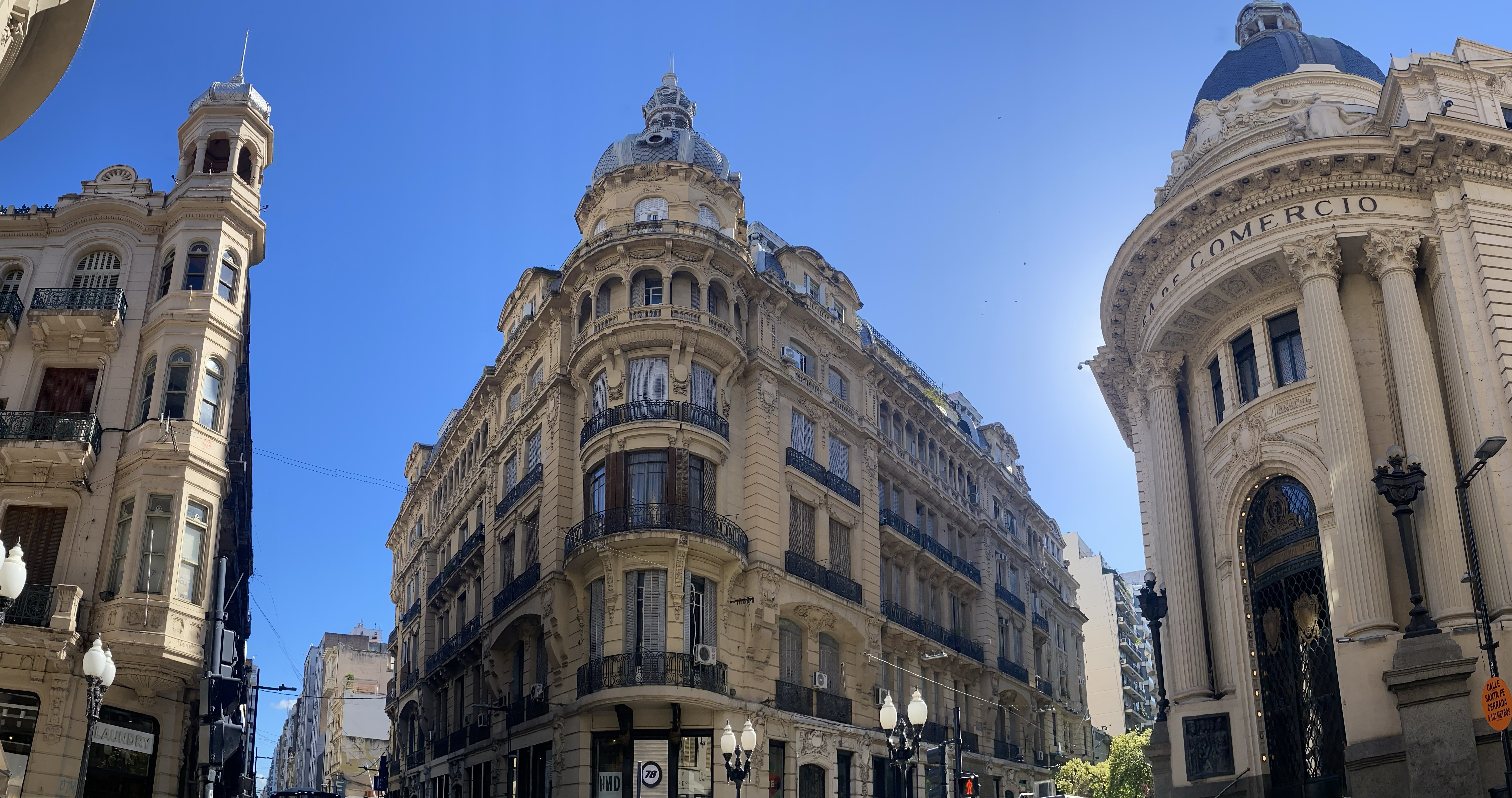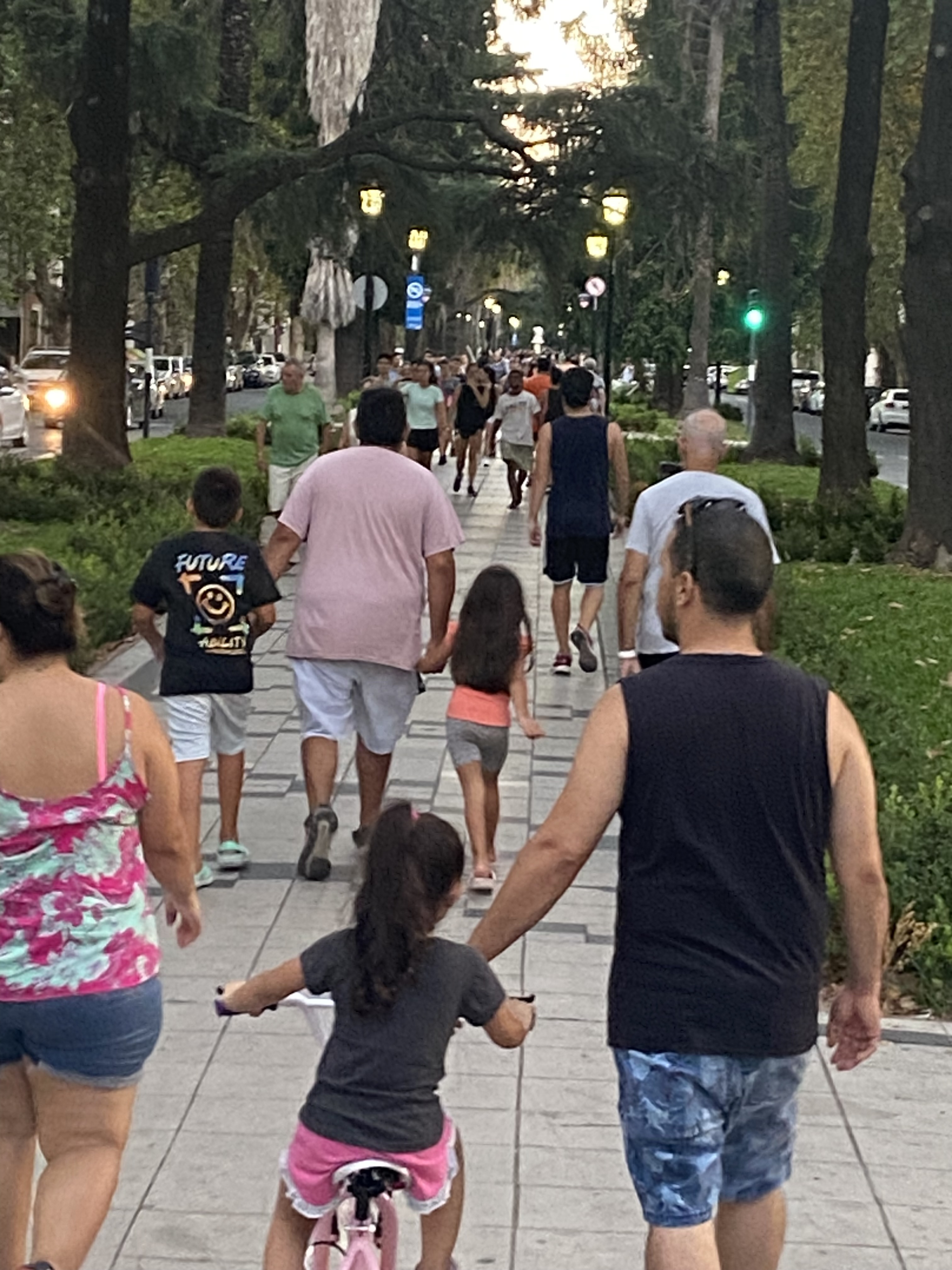|
Today's Opinions, Tomorrow's Reality
Bizarro Economics By David G. Young Rosario, Argentina, February 20, 2024 -- Argentina's once great economy has morphed into a strange inward-looking enclave at the southern end of the world. The stunning Art Nouveau buildings that pepper this city are a reminder of the fabulous wealth generated by businesses at the turn of the 20th century. An early Argentine industrial center manufacturing appliance, automobiles and petrochemicals, Rosario generated such riches that it also became a financial center, and even now continues to host the nation's commodity exchange.
Today, Rosario is less known for industry as it is for being the hometown of international soccer star (and Argentina's national hero) Lionel Messi, and the notorious "Monos" drug gang. Last year, armed men shot up and robbed a Rosario supermarket owned by Messi's in-laws, in what was widely regarded as a message warning to officials not to touch the Monos crime syndicate.1 The Argentine press is full of sensational stories about the murderous fights between rival factions of the Monos, which have created a murder rate in the city five times the national average, with 259 homicides in 2023.2 Such disturbing facts must be taken with a grain of salt. While business owners in Rosario are cautious -- convenience stores typically eye prospective customers before unlocking their doors after dark -- most people do not live in fear. The affluent northwest part of the city center is full of middle-class families, small children and their pets taking pleasant strolls in the mornings and evenings. Outdoor bars and cafes are vibrant and full. The murder rate, while high for Argentina, is nothing compared to Washington DC, which had even more homicides (274 last year)3, despite less than half the population of Rosario. In both Washington and Rosario, violence tends toward the less affluent parts of the city where rival young men battle over turf.
Those neighborhoods on the margins are hardest hit by Argentina's high inflation, which hit a multi-decade record 25.5 percent for the month of December before moderating to a mere 20.6 percent in January.4 Both numbers represent annual inflation rates over 200 percent. The national poverty rate, meanwhile, has soared to 57 percent, with the destitute reaching 15 percent.5 Both are multi-decade records. While the city is relatively prosperous, it is not uncommon to see the poor of Rosario scavenging in dumpsters for recyclables, while more their well-heeled neighbors walk by. The same is true of many cities in Argentina. Manufacturing is still a big part of Rosario's economy, but it is hardly on the cutting edge. There is a large Chevrolet plant in the southern suburbs, a YPF petrochemical facility just north of town, and a number of agricultural processing facilities and terminals along the mighty Parana river. But if the new libertarian administration of President Javier Milei has its way with dollarizing the Argentine economy, manufacturers in Rosario and elsewhere will have to come to terms with increased competition from imports. For nearly a century, protectionist policies including high tariffs, import-substitution subsidies, and government manipulation of foreign exchange rates have buoyed domestic manufacturing at the expense of imports. While some of these barriers have been lowered by a series of non-populist governments starting with that of Carlos Menem in 1989, even today international products in Argentina are much less common and much more expensive than in other parts of the word. While big global chains like Carrefour exist in the city, they are tiny and shabby with limited selection relative to locations in other counties. Mom and pop specialty stores selling largely domestic products dominate. Bakeries, green grocers, butcher shops, and the ubiquitous “vinotecas” selling Argentine wines make for a daily shopping experience more like 1924 than 2024. At Rosario's Casa Ukrania store, which sells products to the city's large Ukrainian community, it is stunning to see virtually no products with packaging written in Ukrainian -- indeed, pretty much everything they sell is made in Argentina. Go to equivalent stores in Toronto or suburban Miami, and you will see dozens of shelves full of a wide variety of brightly colored Ukrainian packaged foods and kitchen wares shipped across the Atlantic. If Milei's free-market reforms are to succeed, this kind of bizarro economic isolationism has to change. Will Rosario's manufacturers, many targeting the domestic market under protection from international competitors, be able to succeed? The answers to these questions are important for all Argentinians, but will have an outsized impact on the future of Rosario. Notes: 1. InSight Crime, New Strategies in Rosario, Argentina, as Monos Fight, March 14, 2023 2. InSight Crime, How Rosario Became Argentina’s Drug Violence Capital, January 30, 2024 3. Washington Metropolitan Police, 2024 Year-to-Date Crime Comparison, February 20, 2024 4. Buenos Aires Herald, Argentina Starts 2024 With a 20.6% Monthly Inflation Rate, February 14, 2024 5. Buenos Aires Herald, Poverty in Argentina Hits 57%, Highest Number in 20 years, Report Says, February 18, 2024 |



